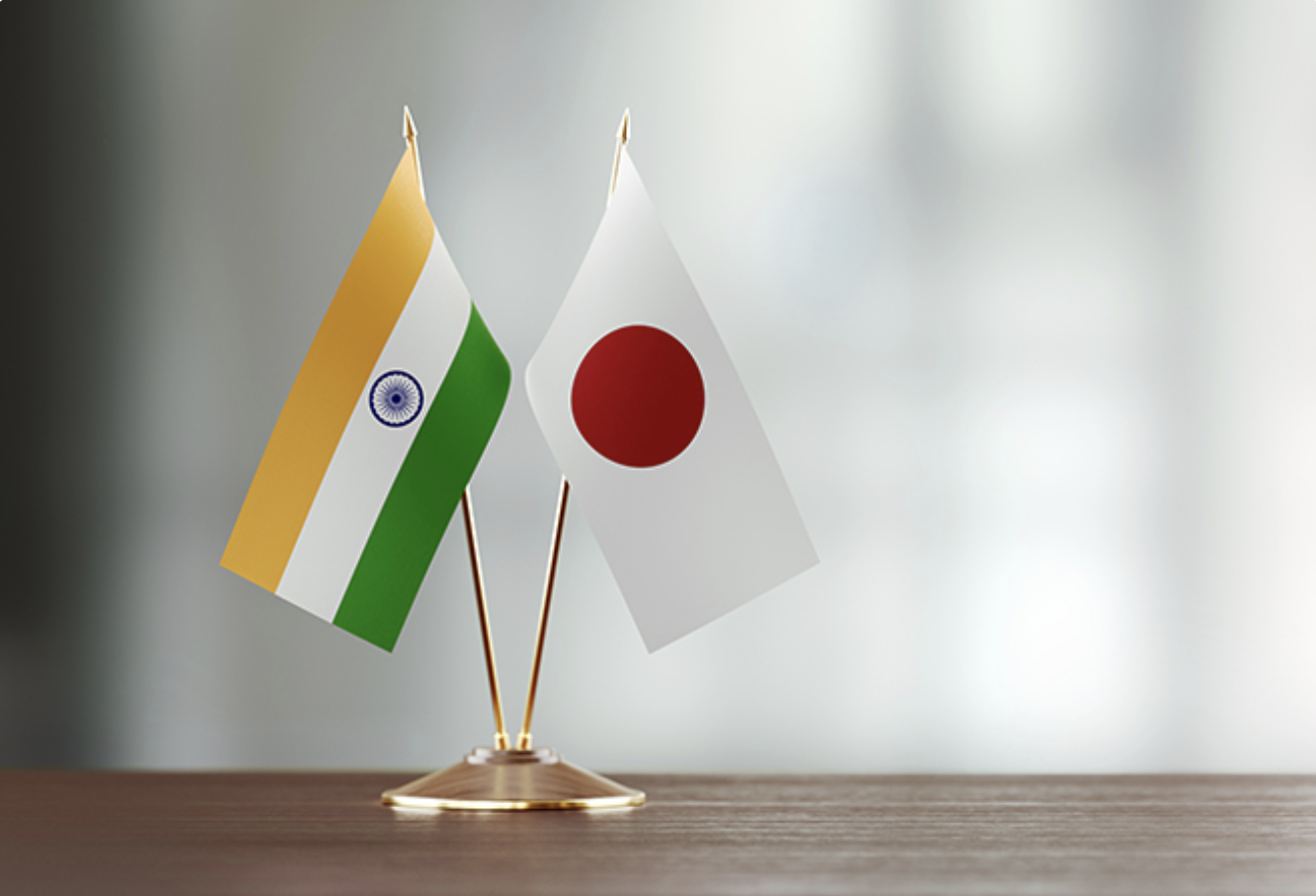-
CENTRES
Progammes & Centres
Location

Image Source: Getty Images
Both India and Japan have built a vast institutional network that supports their partnership. It is indeed hard to think of any other two Asian countries with such an impressive array of supporting institutional mechanisms. It is in this context one has to see the importance of the upcoming India-Japan 2+2 ministerial meeting to be held in New Delhi on 30 November 2019. For the first-time, the defence and foreign ministers of the two countries are going to meet under the new format. Though Japan has such 2+2 meetings with many countries, India has that arrangement only with the US.
The decision to create the new institutional mechanism was taken by Narendra Modi and Shinzo Abe in 2018. Appreciating the enormous progress in fostering joint efforts towards shared security , they reiterated their desire to further deepen bilateral security and defence cooperation by instituting the Foreign and Defence Ministerial 2+2 Dialogue in addition to the many security related bilateral mechanisms. When India’s Defence Minister Rajnath Singh visited Japan in September this year, he took up this subject with his Japanese counterpart and both showed their interest in holding the first 2+2 meeting this year in New Delhi.
The fact that the first meeting is going to be held in India just about two weeks prior to the annual summit between Modi and Abe, will set the tone for the annual summit. From all available reports, the 2+2 talks will be focused on further strengthening security cooperation in the Indo-Pacific region and deepening bilateral economic cooperation. Both countries have underscored the need for creating a rules-based framework to ensure that the region remains open, inclusive and free from the influence of any single preponderant country. Further, as countries depending on sea-borne trade, both India and Japan have also stressed the need for every country to enjoy freedom of navigation, over-flight and lawful commerce in the regional waters against the increasingly assertive maritime activities of the Chinese navy.
To be sure, both India and Japan have made considerable progress in their defence cooperation. There has been steady progress in the area of maritime domain awareness based on the implementing arrangement for Deeper Cooperation between the Japan Maritime Self-Defence Force and the Indian Navy signed in 2018. Further, bilateral exercises are now conducted between all three components of the military forces. In addition, the tripartite annual Malabar Exercises are proceeding smoothly. In addition, Japan-India- and US trilateral mine-countermeasures exercise was held in July 2019 and is likely continue in the same framework from next year onwards. There are suggestions that even the Malabar exercises can be diversified in terms of the number of theatre commands as well as flotillas from all three countries. The 2+2 meeting could also consider the possibility of conducting capacity – building exercises with some countries like Sri Lanka, Vietnam and Indonesia. Such capacity-building efforts will go a long way in enhancing maritime domain awareness and strengthen the whole idea of “free and open Indo-Pacific” and support freedom of navigation and rule of law in the region.
Similarly, Japan-India Maritime Exercise (JIMEX) is also conducted on a regular basis. At the 2+2 meeting, one topic that will come up for discussion is the on-going negotiations regarding the Acquisition and Cross-Servicing Agreement (ACSA). This is a very important agreement that will provide each other supplies and access to fuel and repair facilities. This will greatly heighten the prospects of bilateral defence and strategic cooperation. This agreement will make India the sixth country with which Japan has made such an arrangement along with the US, UK, France, Canada and Australia.
Transfer of defence technology will be another subject of great mutual interest. In 2014, both countries signed a Memorandum of Cooperation and Exchanges in the field of defence. This was followed by two more framework agreements in 2015 on the transfer of defence equipment and technology and the security measures for the protection of classified military information. Cooperation on defence technology and equipment will provide great opportunities for cooperation at the level of public-private companies. Both Modi and Abe have identified many areas for technology cooperation like submarines technology, unmanned Ground Vehicle (UGV) and Robotics. In this context, the ministerial meeting should also take up the question of the long-pending sale of US2 amphibian aircraft to India and make a clear decision.
It is also necessary at the ministerial meeting to evaluate the progress of the Asia-Africa Growth Corridor, a project announced by both countries with considerable fanfare. Subsequently, there were reports that the initial interest had somewhat waned. Perhaps the time has come for both countries to clarify their position on the subject.
It is also possible that Japan will try to discuss and convince India on the question of reconsidering its stand on opting out of the Regional Comprehensive Economic Partnership (RCEP). Japan prefers to have India’s presence to balance China’s influence under the agreement.
The first India-Japan 2+2 meeting on 30 November will be a landmark event. Since it is taking place just a fortnight before the Modi-Abe summit meeting, it carries additional importance too. There is no doubt that it will set the major items on the summit agenda and will be a very useful precursor to the summit.
The views expressed above belong to the author(s). ORF research and analyses now available on Telegram! Click here to access our curated content — blogs, longforms and interviews.

K.V. Kesavan (1938 2021) was Visiting Distinguished Fellow at ORF. He was one of the leading Indian scholars in the field of Japanese studies. Professor ...
Read More +